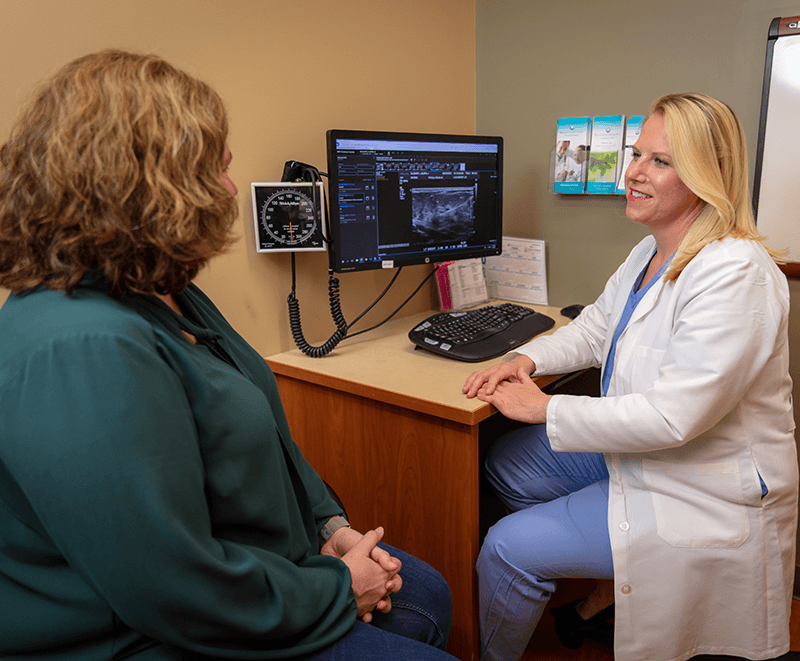Colon Cancer
Age 45-75: People at average risk (are in good health and with a life expectancy of more than 10 years) should continue regular colorectal cancer screenings.
Lung Cancer
Age 50-80: Annual lung cancer screening with a low-dose CT scan (LDCT) if your patients meet the following conditions:
A current or former smoker (within the past 15 years).
Have at least a 20 pack-year smoking history.
Prostate Cancer
Men Only Age 50-69: Consider screening with a PSA for average risk patients. The decision to screen with PSA should be based on patient preference, family history and current health.
Breast Cancer
Women Only Age 40-74: Start screening with mammogram annually.
Cervical Cancer
Women Only Age 25-65: Women should have an HPV test every 5 years. If HPV testing is not available, women can get screened with an HPV/PAP cotest every 5 years, or a PAP test every three years.

Early Detection of Cancer Saves Lives
Early detection is one of the most important factors in the outcome of a cancer diagnosis. That’s why it is important to be sure you’re receiving regular screenings for breast, cervical, colon, skin, and other types of cancer if you qualify. Work closely with your doctor to determine which types of cancer you should be screened for, and how often based on your risk factors, so you can create a schedule.
While it’s important to receive your routine physical exams and screenings, don’t hesitate to go to the doctor if you notice something unusual. If you want a few months till your next regular appointment, it could be harder to treat cancer if it’s found. Early detection gives your oncology team more options for treatment and may make your treatment easier.
If you or a loved one is diagnosed with cancer, our team of experts is available for a consultation right away. Request an appointment at one of our Twin Cities locations today.